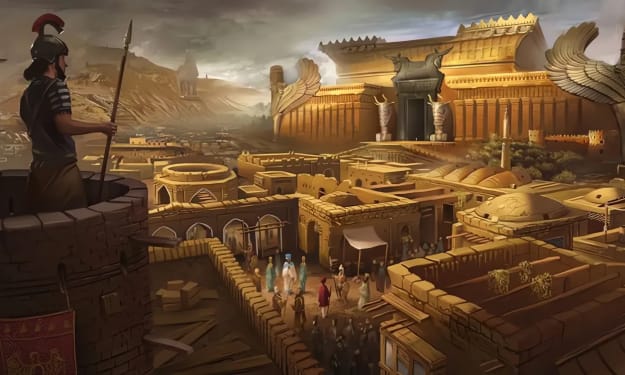History's Greatest Explorers
discovering the world

The exploration of ancient times was a captivating endeavor undertaken by individuals who ventured into uncharted territories, faced extraordinary dangers and challenges, and expanded the horizons of human knowledge. These intrepid explorers were driven by curiosity, the spirit of adventure, and the tireless search for new discoveries. Whether navigating uncharted oceans, scaling towering mountains, or traversing unexplored territories, they left an indelible mark on history.
Leif Erikson, an 11th century Norse explorer, is known for being one of the first Europeans to set foot in North America, approximately 500 years before Christopher Columbus' famous voyage in 1492. Born around the year 970 in Iceland, Erikson was the son of the legendary explorer Eric the Red, founder of the Norse colonies in Greenland. According to the Icelandic sagas, Erikson sailed towards the West and reached a land that may have once been part of the present-day coastal areas of Canada. Erikson is believed to have arrived in Vinland and, after being pushed to the West by a storm, he and his crew established a settlement in the region where they spent a winter. The importance of Erikson's explorations was relatively forgotten for many centuries; however, today, he is considered one of the great explorers of the Viking age.
Marco Polo, a famous Venetian explorer of the 13th century, was born in 1254 in Venice, Italy, into a merchant family. At the age of 17, Polo embarked on an epic journey that would lead him to explore Asia and become one of the first Europeans to document his travels across the continent in detail. In 1271, Polo, along with his father and uncle, set out on a business trip eastwards. They traveled the Silk Road and crossed regions such as the Middle East and the Mongol Empire, ruled by the famous Kublai Khan. Polo's journey was full of adventures and discoveries, and he spent about 17 years in the court of Kublai Khan, where he served as an emissary and advisor to the Mongol ruler. After his long stay in Asia, Polo finally returned to Venice in 1295.
Zheng He was a Chinese admiral and explorer who lived during the Ming dynasty in the 15th century. He is remembered as one of the greatest navigators in Chinese history and was famous for leading maritime expeditions undertaken by the Chinese Fleet to explore and establish diplomatic relations with other regions of the world. In 1405, the Emperor Yongle of the Ming dynasty ordered the first maritime expedition led by Zheng He. The Zheng He expeditions were true nautical feats for the time, with fleets composed of hundreds of ships and thousands of crew. The fleet visited many countries and regions along the Indian Ocean and the South China Sea, including Southeast Asia, India, the Persian Gulf, and East Africa. The contribution of China to maritime exploration is widely recognized by historians worldwide.
John Cabot, also known as Giovanni Caboto, was an Italian explorer of the late 15th and early 16th centuries. He is famous for leading one of the first documented European expeditions to reach North America in 1497. With the support of King Henry VII of England, Cabot set out on an expedition to find a sea route to the Indies with a small ship named Matthew. He sailed west across the Atlantic Ocean, and on June 24, 1497, the expedition reached what is now known as Newfoundland in Canada. In 1498, Cabot embarked on a new voyage, this time with a fleet of five ships. However, the expedition faced difficulties and was unsuccessful in finding a direct route to the Indies. Its crew disappeared, and its exact destination is unknown.
Christopher Columbus was a navigator who lived during the late 15th and early 16th centuries. He is widely known for leading the expedition that resulted in European colonization in the Americas in 1492. Columbus gained the support of Kings Ferdinand and Isabella of Spain for his expedition. He intended to find a western sea route to the Indies with a fleet of three ships. Columbus left Spain on August 3, 1492, and after a voyage of about two months, his expedition reached an island in the Bahamas. Columbus believed he had reached the Indies, but in reality, he had reached the American continent. He continued exploring the Caribbean, parts of Central and South America, making several voyages between 1492 and 1502. Today, Christopher Columbus is celebrated as one of the most important navigators in history.
Vasco da Gama was a Portuguese navigator of the 15th century, best known for leading the first direct sea expedition from Europe to India, opening a sea route across the Indian Ocean, and establishing a direct trade connection between Europe and the Orient.
About the Creator
A História
"Hi. My name is Wellington and I'm a passion for general history. Here, I publish articles on different periods and themes in history, from prehistory to the present day.






Comments (1)
Sorry, but instead of Columbus, I have never heard names of any of these explorers. But by the way great article, you increased my knowledge. Thank You